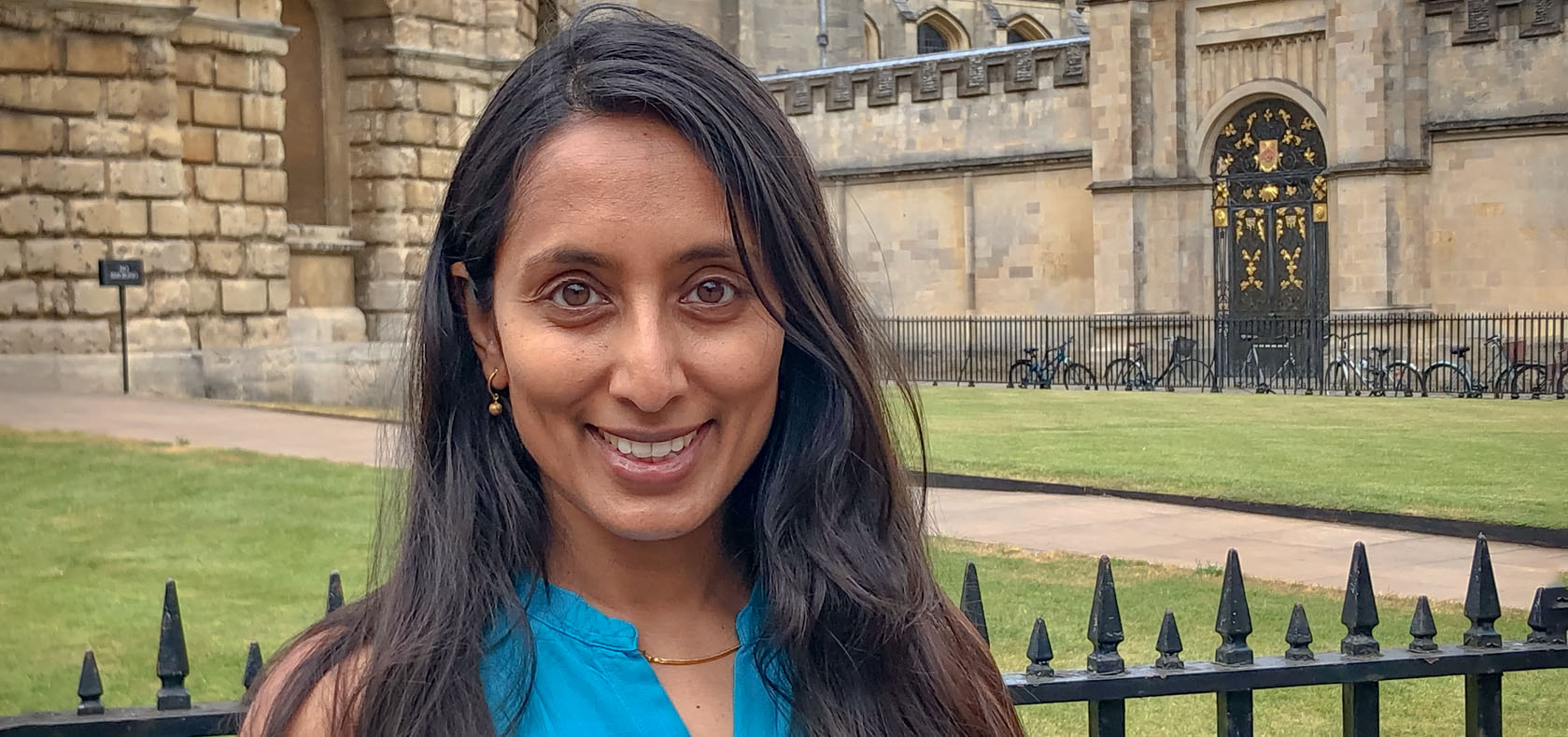I am Generation Equality: Maheshi Ramasamy, scientist, Principal Investigator for the Oxford AstraZeneca COVID-19 vaccine trials
Date:


Three ways you can help close the gender gap in STEM:
- Families should support girls in pursuing careers in science.
- Employers should create a work environment that supports work-family balance
- Ensure paid maternity leave and equal pay
I am generation equality because…
“I am fortunate to work at the Oxford Vaccine Group along with some amazing women scientists developing the Oxford AstraZeneca vaccine. From the design of the vaccine to the clinical trial team, the laboratory team, and the statisticians, nearly two thirds of the researchers who are working on this project are women.
As a child, growing up in Sri Lanka, I was lucky to have many female role models to look up to. My grandmother was a school principal, my mother was a scientist and my aunt was a physician. I always wanted to be a doctor and also loved problem solving and understanding how things work. That is what led me to develop a career in clinical research. I had girl friends who were discouraged from studying science and math at school as they were perceived to be bad career choices for girls. Growing up around women with independent careers, it never occurred to me that I could not be a doctor or a scientist because I was a girl.
Equal opportunities for women
When I started out, I had the difficult experience of being offered a job and then being turned down when I told the interview committee that I was pregnant. By creating a work environment that supports family and work balance, employers can maintain a loyal and motivated workforce.
Perceptions that women are not as capable as men certainly do not help the advancement of science. We need all brilliant minds, regardless of their gender, to work and solve problems together. In my own career, I see things are heading towards equality, and there is better representation and more women in leadership now than when I started twenty years ago.
“Equal pay and flexible working patterns are crucial to better support working women.”
When I started working as a junior doctor in the UK, there were no female consultants in my hospital and now over 50 per cent of consultants are women. However, we are still not in the higher echelons and there is still a glass ceiling. I am hopeful that we will get to a point where we no longer label women as ‘lady doctors’ or ‘female scientists’. Instead, they would just be ‘doctors’ or ‘scientists’ regardless of their gender.
Supporting flexible working arrangement and equal pay
To me, the ‘rest of life’— family, friends, —is more important than my career. It can be difficult to combine a career with the ‘rest of life’ and to be supported by employers to get this balance right.
Equal pay and flexible working patterns are crucial to better support working women. There should be no difference between the salary of a woman and a man if they are doing the same job. Whether it means you start early or finish late, having the flexibility to work around other commitments, is important to help women balance their work and life.
Recognizing and paying for maternity leave is important as well. In the UK, one of the things we are lucky to have is paid maternity leave, where we get about nine months of paid leave which can be shared between both parents. Many men also want to be able to spend more time with their families, so this flexibility should not be restricted to women alone. Such policies make a tremendous impact on the quality of life and work of women.
Empowerment starts in the family
From my mother and my aunt, I grew up around strong women who worked. These women were valued in our family. That really set me up for developing my own career as a clinical academic. My husband is incredibly supportive as well. When I have to work late, or when I have to answer a phone call in the middle of the night, he understands. We are very much equal partners in the house in terms of sharing the childcare and housework and we respect each other’s careers. I believe that it is important that your family backs you in what you do. I wouldn’t have been able to succeed in my work without my family’s support.”
Maheshi Ramasamy is a Sri Lankan-born scientist and physician, and a Principal Investigator at the Oxford Vaccine Group where she leads on adult clinical vaccine trials including for the Oxford AstraZeneca COVID-19 vaccine. As the Generation Equality Forum — a landmark event to catalyze rapid advancement on gender equality — approaches, she calls for equitable pay and flexible work policies, including paid maternity leave. The Forum is convened by UN Women and co-hosted by the governments of Mexico and France, in partnership with youth and civil society.